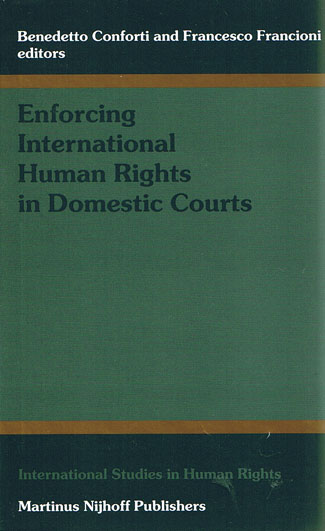
Exploring the ways in which domestic courts deal with international human rights issues in their respective jurisdictions, this study identifies the most common obstacles hindering effective adjudication and enforcement of human rights in domestic law.
The aim is to suggest judicial models that may help to reduce or remove those obstacles, consistently with the principle, recognised in modern constitutions, that national courts are bound to participate in the implementation process of international law.